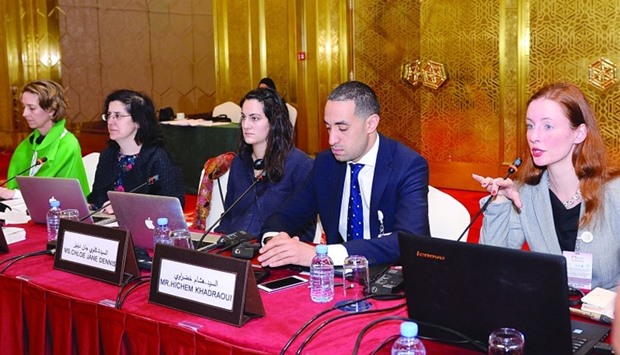The conference was organised by National Human Rights Committee (NHRC) and the UN High Commissioner for Human Rights, in co-operation with the General Secretariat of the Council of Arab Interior Ministers and the Arab Network for National Human Rights Institutions.
A workshop on "Education under Attack: How to Protect the Right to Education in Armed Conflict" discussed the ways to protect the rights of students in conflict-ridden areas. Speakers suggested that along with traditional ways, new methods should be explored to provide education to children in these places. “It needs legal and policy reforms. There must be a safe school declaration and schools must not be allowed to be taken over by the military in any case. It must come from international and regional advocacy,” said Chloe Jane Dennis, a member of Lawyers for Justice in Libya.
She highlighted the example of a Skypeschool in Benghazi where the Libyan diaspora is helping large number of students, reeling under conflicts, using the Skye to educate the children. “There must be similar efforts to protect the rights of the children. Efforts must be made to engage the international community for the rights of the children in such areas,” she added.
The speakers focused on the topic of accountability for education-related violations in international law. They discussed the challenges facing the issue and how to improve the processes of documentation, persecution and partnership to end attacks against education. The other idea was to avoid the use of schools for military purposes as well as engaging with non-state armed groups to encourage them to abide by the international law related to education. They also pointed out that civil societies must promote the right to education in areas of conflict in a big way.
Another workshop addressed the humanitarian aid efforts in countries like Syria, Iraq, and Yemen. It discussed the challenges facing the delivery of humanitarian aid in these areas and ways to overcome them.
One of the challenges the participants focused on was the targeting of humanitarian organisation by the extremists as 40% of aid workers were subjected to violence. They called for documenting those attacks and for holding accountable the attackers.
They also called for respecting international humanitarian law, which they said would help alleviate the suffering and limit the killing and displacement of people. It would also allow for providing humanitarian aid to the needy at these places.


